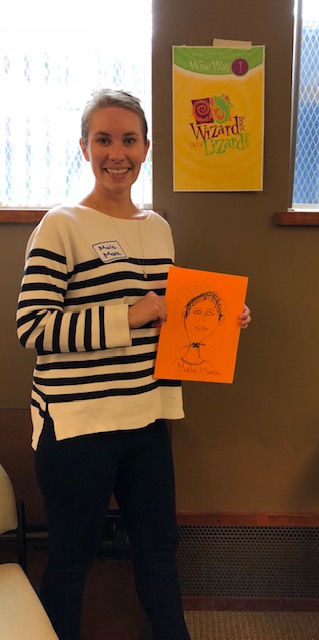BrainWise Instructor Training
Posted On: October 17, 2018What are the best ages for individuals to be when they learn BrainWise? BrainWise was developed to be taught to individuals of all ages and abilities. The program can be adapted with appropriate examples from kindergartners to adults, for special needs to gifted and talented, and for children, teens, and adults with a wide range of needs.

Maile Monk, Ph.D., the district’s Mental Health Specialist, believes BrainWise can help them achieve this goal. In collaboration with the Weld 3J administration, principal, and faculty, she ordered curricula and scheduled a professional development day for training for the school’s entire staff. The school year started with everyone informed of the 10 Wise Ways and where they could get support.
Dr. Monk learned about BrainWise when she was a graduate student and observed a teacher asking students to identify wizard brain and lizard brain behaviors. “It caught my attention because it made so much sense!” She had an opportunity to teach the program when she was at another school where BrainWise was being introduced for the first time. She said that she was “impressed by how teachers taught the program with fidelity and integrated the concepts into their everyday lessons.”
That said, she plans to do more to help all faculty and staff recognize opportunities to reinforce BrainWise. “Teachers need help to infuse the Wise Ways into everything – some don’t see its extensive applications.” Already taught in many of the district’s elementary schools, her goal is to integrate BrainWise into all schools, including middle and high school. “BrainWise provides a foundation that enhances all SEL, PBIS, and PYD programs. Its common language underlies its universal application as an intervention program. I tell teachers that the 10 Wise Ways provide them with a foundation of social and emotional skills to refer back to throughout the school year. They help students apply the thinking skills not only to their problems, but to the problems of others, helping them move to the next level.”
She eases the fear some teachers have of adding more work by telling them that “BrainWise is a framework for everything. It is a way to make learning more effective and efficient.” She tells them “they can pick it up and use it! Using the brain as a teaching tool is so natural, and its explanations are easy to understand and apply.”
As a certified BrainWise trainer, Dr. Monk will be training teachers and staff throughout the district. She sees the program as a universal intervention. Parent involvement is paramount, and future plans include using middle and high school students as BrainWise mentors for younger students.
I am delighted to note that BrainWise research team member, Marilyn Welsh, PhD, served on Maile’s doctoral committee years ago. Dr. Monk says that her school district is using the CASEL approved Panorama SEL measurements to assess student outcomes. Our research team will be exploring this as an instrument other BrainWise sites can administer, helping us collect outcome data that meets the rigorous CASEL standards.